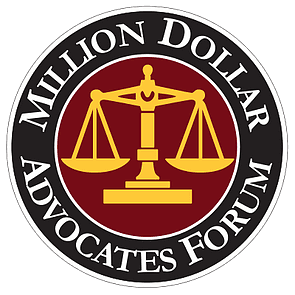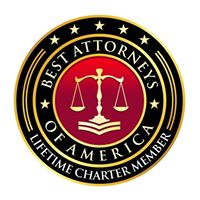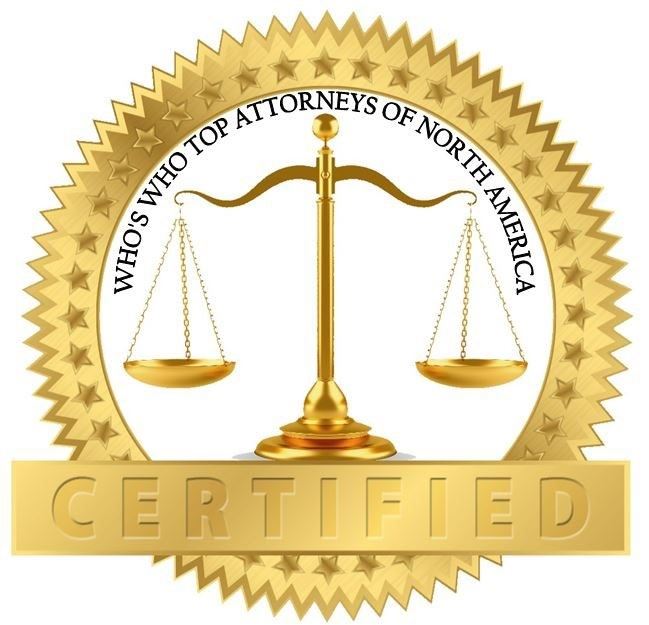
Dodd-Frank Act
Knowledgeable Whistleblower Lawyers Representing Clients in the Greater New York City Area
The Dodd-Frank Wall Street Reform and Consumer Protection Act (Dodd-Frank Act) was passed in 2010 in response to the financial crisis of 2008. It is an enormous piece of financial reform legislation. Among other things, the Dodd-Frank Act provides whistleblower protection to employees in New York. At Phillips & Associates, our New York City whistleblower attorneys may be able to represent you in connection with blowing the whistle on your employer, including pursuing any damages that you may be entitled to recover for retaliation.
Awards Under the Dodd-Frank Act
Under Section 922 of the Dodd-Frank Act, the SEC is supposed to pay awards to eligible whistleblowers who, of their own volition, give the SEC original nonpublic information about a securities law violation that leads to a successful enforcement action that results in monetary sanctions of more than $1 million. Original information under Dodd-Frank is information obtained from the independent analysis or knowledge of the whistleblower that is not known to the SEC from another source. It cannot be exclusively derived from a judicial or administrative hearing or news media, unless the whistleblower is the source of the information.
The amount of the award is supposed to be 10-30% of the monetary sanctions that are collected in the Commission's action or a related action. The statute of limitations under which whistleblowers can bring claims against employers is 180 days after a violation is discovered.
The SEC whistleblower program is administered by the Office of the Whistleblower. However, it can be helpful to retain an attorney even when you are first trying to decide whether to report securities fraud or another violation.
Dodd-Frank also mandates a reward by the SEC to whistleblowers who voluntarily give original information about securities violations or bribes paid to foreign officials who violate the Foreign Corrupt Practices Act. There is a similar program for the Commodities Future Trading Commission, which provides rewards when whistleblowers make reports of violations when commodities are traded. There is some overlap with the Sarbanes-Oxley Act, but Dodd-Frank contains a longer statute of limitations, offers larger back pay awards, and provides the chance to sue in federal court. Protection applies when an employee reports consumer law violations to an employer or any local, state, or federal government authority or law enforcement agency.
Protections Against Retaliation
It can be nerve-wracking to consider reporting your employer and threatening your livelihood, regardless of the incentives under the SEC and CFTC programs. Crucially, however, Dodd-Frank prohibits employers from retaliating against whistleblowers. Your employer is not supposed to retaliate against you for reporting violations of the laws that cover commodity and currency exchange, corporate and accounting fraud, or consumer finance. Retaliation can include a wide range of adverse behaviors taken by an employer in response to an employee's engagement in protected activities. It can include being fired, demoted, or even harassed.
Previously, there was some disagreement among courts about whether whistleblowers who report securities violations should be protected under Dodd-Frank. The SEC had interpreted the whistleblower protections more broadly to encompass internal complaints that were otherwise eligible. However, in 2018, the Supreme Court ruled that whistleblower protections only apply to people who report problems to the SEC, rather than people who simply file an internal report. The justices held that employees who only report problems to management but not the SEC will not qualify for Dodd-Frank protection against retaliation. However, if you simply report a problem to your management, you may still have protections against retaliation under the Sarbanes-Oxley Act.
Discuss Your Options with a Whistleblower Lawyer in New York City
People who are mistreated in the workplace because they reported a securities violation to the SEC should seek out knowledgeable legal help. If you are concerned about whistleblower protections under the Dodd-Frank Act in a New York City workplace, you should consult an experienced employment attorney. You can contact Phillips & Associates at (866) 229-9441 or through our online form for a free consultation. We handle employment litigation in the boroughs of the Bronx, Queens, Brooklyn, and Manhattan; the counties of Westchester, Nassau, and Suffolk; as well as New Jersey, Connecticut, and Pennsylvania.
Statute of Limitations
Dedicated Whistleblower Attorneys Serving New York City and Surrounding Areas
If you believe that your New York employer has committed fraud against the government or other legal violations or misconduct, and you are considering filing a qui tam action or reporting the fraud, it is crucial to be aware of the statute of limitations. There is a limited window of time within which to take action to file a qui tam claim, and there is also a limited window of time within which to file a retaliation lawsuit, should you need to file it. Failing to take action within the statute of limitations specified under the statute can result in losing the right to receive a financial reward for reporting fraud or being barred from filing your retaliation claim. The New York City whistleblower lawyers at Phillips & Associates can help you protect your rights.
Statutes of Limitations
Some employers take retaliatory or discriminatory actions against employees for reporting misconduct. There are different statutes of limitations to bring retaliation lawsuits under the various whistleblower statutes. In some cases, there are time limits with regard to obtaining an award for blowing the whistle as well, and it can be helpful to consult with an attorney once you learn of an employer's misconduct to make sure that you follow the rules and procedures set forth under the appropriate statute or statutes.
The False Claims Act
The False Claims Act allows a whistleblower to file a qui tam lawsuit against someone committing fraud against the government and possibly receive part of the recovery gathered from that lawsuit as a reward for whistleblowing. The general statute of limitations for filing a qui tam lawsuit is six years after the date on which a false claim was made. There are exceptions to this statute of limitations. The statute of limitations for filing a qui tam claim is three years after the appropriate federal official was notified of the possibly fraudulent activity. You definitely cannot file more than 10 years after the fraud happened. However, courts have held that the statute of limitations for whistleblower claims has been tolled under the Wartime Suspension of Limitations Act of 2002 when military actions were authorized in Iraq. That means that a court may find that the clock has stopped running on the statute of limitations for FCA claims during periods of war.
The statute of limitations to file a lawsuit if your employer retaliates against you under the False Claims Act is three years.
Sarbanes-Oxley Act
If you have been subject to retaliation under the Sarbanes-Oxley Act as an employee of a publicly traded company, you must file a written complaint with the Department of Labor within 90 days of learning of the discrimination, harassment, or retaliation to which you were subjected.
Dodd-Frank Act
If you are an employee with concerns about securities laws violations, you should go directly to the SEC with your concerns.
The Dodd-Frank Act's statute of limitations for retaliation is more similar to the statute for the False Claims Act than the statute for Sarbanes-Oxley. Under Section 21F, you cannot file a retaliation action more than 6 years after the retaliatory acts. An employee also can file a retaliation action up to 3 years from the date when material facts were known or reasonably should have been known by the employee, but not more than 10 years after the violation happened. The Dodd-Frank Act has a two-year statute of limitations if you wish to bring a retaliation lawsuit based on the Commodity Futures Trading Commission's whistleblower program.
Learn About Your Options by Consulting a New York City Attorney
It is often important to work with an attorney in connection with blowing the whistle on your employer, and it is crucial to consult an attorney if you have been subjected to retaliation for reporting your employer for misconduct. If you are concerned about the statute of limitations for a whistleblower claim involving a New York City workplace, you should consult an experienced employment litigator. You can contact Phillips & Associates at (866) 229-9441 or through our online form for a free consultation. We handle employment disputes in the boroughs of the Bronx, Queens, Brooklyn, and Manhattan; the counties of Westchester, Nassau, and Suffolk; as well as New Jersey, Connecticut, and Pennsylvania
What Our Clients Say:
-
"He covered every angle and was able to help me with my dispute. I would recommend Jesse Weinstein and Phillips and Associates in the future to anyone."
- Margaret -
"Being in the restaurant industry for more than 30 years I can say that this law firm is the number one choice for workers in the restaurant business that need to sue their company for wrongful termination."
- Massimo -
"He was extremely patient and understanding throughout the process and remained professional and consistent even when I could not. I really felt like he had my back and I didn't have to worry."
- Karen



.2306081245574.png)






